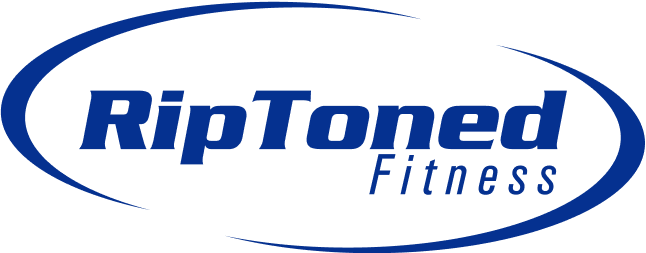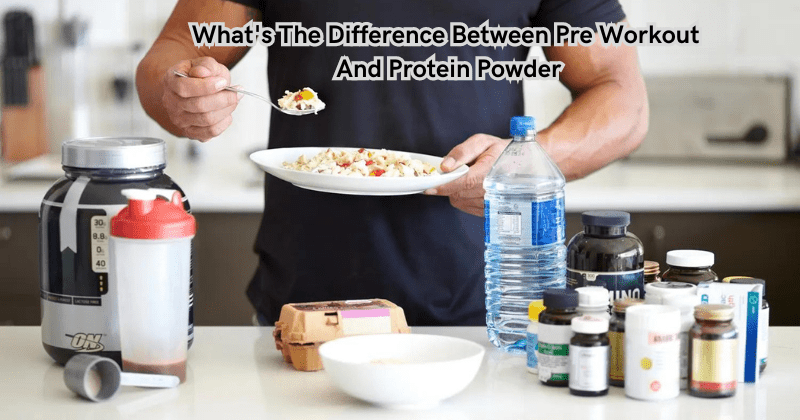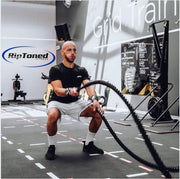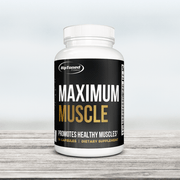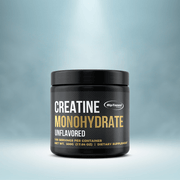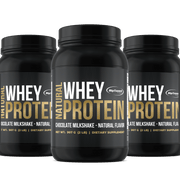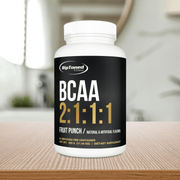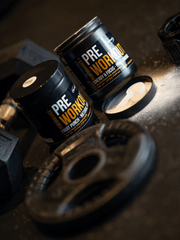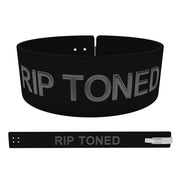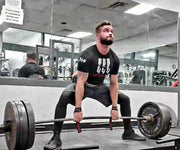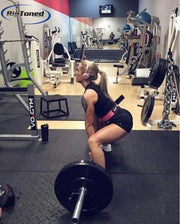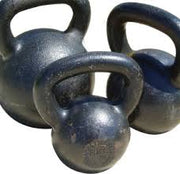Pre-workout and protein powder are two of the most popular supplements used by fitness enthusiasts. While both products aim to support a person's fitness goals, there are significant differences between them. Pre-workout supplements are designed to provide an energy boost and increase endurance during workouts, while protein powder is meant to aid in muscle recovery and growth after exercise.
Beyond these primary purposes, there are several other differences between these two supplements that should be considered when deciding which one to incorporate into your fitness routine. In this article, we will explore the nuances of pre-workout and protein powder, including their ingredients, benefits, and potential side effects. By the end, you will have a better understanding of which supplement is best suited for your specific fitness goals.
What are pre-workout supplements?
Pre-workout supplements are formulations designed to be consumed before a workout, hence the name "pre-workout." They typically come in powder form and are mixed with water or other liquids. Pre-workout supplements contain a combination of ingredients such as caffeine, creatine, amino acids, and vitamins that aim to provide an energy boost, improve focus and concentration, and delay muscle fatigue during exercise.
One of the key ingredients in pre-workout supplements is caffeine, which acts as a stimulant and can improve physical performance. Other common ingredients include beta-alanine, which helps to reduce muscle fatigue, and citrulline malate, which aids in increasing blood flow and delivering nutrients to muscles during exercise.
What are protein powders?
Protein powder is a popular nutritional supplement that is typically consumed post-workout. It comes in various forms, including whey, casein, and plant-based options such as pea or soy protein. Protein powder provides a concentrated source of protein that aids in muscle recovery and growth after exercise.
Athletes and fitness enthusiasts commonly use protein powders to meet their daily protein needs, as it can be challenging to consume enough protein through food alone. Whey protein, in particular, is known for its high content of essential amino acids that are crucial for muscle repair and growth.
Key differences between pre-workout and protein powder
While fitness enthusiasts use both pre-workout supplements and protein powders, their purposes and ingredients differ significantly. Here are some key differences to consider when deciding which supplement to incorporate into your fitness routine:
Purpose
The primary purpose of pre-workout supplements is to provide an energy boost and enhance endurance during workouts. This makes them ideal for individuals who want to push their limits and improve their performance in the gym.
On the other hand, protein powders are primarily used for muscle recovery and growth after exercise. They aid in repairing damaged muscles and promoting new muscle growth, making them essential for athletes and individuals looking to build muscle mass.
Timing
Pre-workout supplements are designed to be taken before a workout, typically about 30 minutes prior. This allows the ingredients to kick in and provide an energy boost during exercise.
On the other hand, protein powders are recommended for consumption post-workout, within an hour after completing a workout. Consuming protein at this time is crucial for optimal muscle recovery and growth.
Ingredients
As mentioned earlier, pre-workout supplements typically contain a combination of caffeine, creatine, amino acids, and vitamins. These ingredients work together to provide an energy boost and delay muscle fatigue during exercise.
Protein powders, on the other hand, have a higher concentration of protein and may also include additional ingredients such as vitamins and minerals, depending on the brand.
Side effects
While pre-workout supplements can provide an energy boost and improve performance, they may also come with some side effects. These include increased heart rate, jitters, and trouble sleeping if consumed too close to bedtime.
Protein powders are generally considered safe for consumption; however, individuals with lactose intolerance may experience discomfort when consuming whey protein. Plant-based options may be a suitable alternative in this case.
Benefits
The benefits of pre-workout and protein powder supplements differ based on their primary purpose. Pre-workout supplements can improve exercise performance, while protein powders aid in muscle recovery and growth.
However, both supplements can also indirectly benefit overall health by providing essential nutrients that may be lacking in one's diet.
Pros and cons of pre-workout and protein powder
While both pre-workout supplements and protein powders have their advantages, they also come with some potential drawbacks.
Pros of pre-workout:
- Provides an energy boost for improved performance
- Enhances focus and concentration during exercise
- Contains ingredients that delay muscle fatigue
Cons of pre-workout:
- It may cause side effects such as increased heart rate and jitters
- It can be expensive compared to other supplements
Pros of protein powder:
- Aids in muscle recovery and growth post-workout
- Helps meet daily protein needs for individuals with high fitness levels or specific dietary restrictions
Cons of protein powder:
- It may not be necessary for individuals with a balanced diet
- Some options may be more expensive than whole food sources of protein.
Why choose one over the other?
The decision to use pre-workout supplements or protein powder depends on an individual's fitness goals and needs. Those looking for an energy boost and improved performance during workouts may benefit from incorporating a pre-workout supplement into their routine.
On the other hand, individuals focused on increasing muscle mass and promoting muscle recovery may find protein powder more beneficial. It is also worth noting that consuming both supplements simultaneously may not be necessary and could lead to an excess protein intake of certain ingredients.
Also, it is essential to consider any preexisting health conditions or allergies before choosing a supplement. Consulting with a healthcare professional or registered dietitian can help determine the best option for an individual's specific needs. Ultimately, finding the right supplement to support one's fitness goals should involve careful consideration and research.
Can pre-workout and protein powder be used together?
While pre-workout supplements and protein powders can be used together, it is not always necessary. As mentioned earlier, consuming both supplements simultaneously may lead to an excess intake of certain ingredients. This could potentially cause side effects or be counterproductive to one's fitness goals.
If an individual decides to use both supplements together, it is essential to carefully read the labels and ensure that the ingredients do not overlap. For example, a pre-workout supplement that already contains a high concentration of caffeine may not be necessary to consume with a protein powder that also contains caffeine.
Ultimately, it is best to consult with a healthcare professional or registered dietitian before deciding to use pre-workout supplements and protein powders together for optimal safety and effectiveness.
FAQs
What is the main difference between a pre-workout and a protein shake?
The primary difference between pre-workouts and protein shakes lies in their purpose. Pre-workouts are designed to boost energy and increase focus and endurance during your workout session. On the other hand, protein shakes, often made with whey protein concentrate, are consumed primarily for muscle recovery and growth post-workout.
In the debate of pre-workout vs protein, which should I choose?
The choice between pre-workout or protein powder depends on your fitness goals. If you want to enhance your performance and endurance during workouts, a pre-workout may be beneficial. If your aim is muscle recovery and growth, then protein supplements would be the better choice. Some individuals choose to use both for maximum benefits.
Can I mix pre-workout and protein shakes together?
While it's not harmful to mix pre-workout and protein shakes, it's generally not recommended as they serve different purposes. Pre-workouts are best consumed before exercising to maximize energy and performance, while protein shakes are typically consumed after a workout to aid in muscle recovery and growth.
Should I consume pre-workout or protein powder after my workout session?
After a workout session, your body needs nutrients to repair and grow muscles, which makes this the ideal time to consume a protein shake. Pre-workouts are typically consumed before a workout to boost energy levels and enhance performance during the workout.
Conclusion
Pre-workout supplements and protein powders are two popular options for individuals looking to enhance their fitness journey. While they have their differences, both can offer significant benefits when used correctly and in moderation. It is essential to understand one's fitness goals and consult with a healthcare professional before incorporating these supplements into one's routine.
Additionally, making sure to read labels carefully and not exceed recommended dosages can help avoid potential side effects. Proper use of these supplements, along with a balanced diet and regular exercise, can aid in achieving fitness goals and promoting overall health and well-being.
